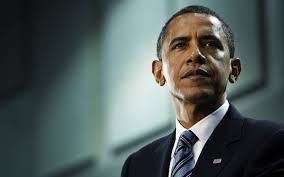Immigration reform – Obama’s last chance for a legacy

US President, Barack Obama
US President Barack Obama is forging ahead without the assent of the US Congress to put in place immigration reforms that could spare from deportation up to five million people currently illegally residing in the US.
President Obama’s initiative would give his presidential term a lasting legacy after the effective failure of his health care reforms, his inability to achieve a significant rapprochement between Israel and the Palestinians and the ongoing conflict in Iraq and Syria.
But the move could also trigger one of the most divisive partisan confrontations of his term.
Mr Obama declared recently that Washington had allowed the problem to “fester for too long”.
His executive action is expected to shield up to five million illegal immigrants from deportation through an amnesty while offering them the chance to work for permits.
It would also overhaul the enforcement system and boost border security, reports in the US say.
And temporary residency would be afforded young undocumented immigrants who arrived in the US before the age of 16.
The order also shifts policy from a dragnet approach of deporting all illegal aliens to a focus on deporting convicted felons and those who pose a danger to society.
People living and working illegally in the country would and who meet the criteria would be able to apply for ‘deferred deportation’ from next year.
The move would represent the most profound changes to US immigration policy in almost 30 years but it would not go as far as changes advocated for by immigration reform activists.
Republicans staunchly oppose Mr Obama’s policy intentions but cannot agree among themselves a way forward.
Some conservative Congressmen have threatened to push for a government shutdown and one has even canvassed pursuing a process of impeachment.
But President Obama has decided on an aggressive stand that he once conceded was beyond his powers.
“What I’m going to be laying out are the things I can do with my lawful authority as President to make the system work better, even as I continue to work with Congress and encourage a bipartisan comprehensive bill that can solve this entire problem,” he said recently.
But Republicans have warned that unilateral action by the President would complicate the prospect of Congress passing a comprehensive bill and imperil cooperation on other issues during Mr Obama’s final two years in office.
After sweeping the mid-term elections last month, the Republicans will control both the Senate and the House of Representative when the new Congress resumes in January.
Cesira Colleluori
AMES Staff Writer












